
Since I only started cooking this quarter, I did not really know how crunch time would affect my eating habits. I figured that cooking would be a great way to procrastinate. Unfortunately, studying got the better of me, and my kitchen has been neglected. I've been surviving on left overs stretched with free food from clubs and parties... (If you have facebook, here's ridiculous proof.)
This morning's farmer's market was a reminder that I've been neglecting my diet. I'm making up for it by cooking two servings of swordfish smothered in a home made onion-tomato spread. One for dinner, one for later on this week.
I feel like left-overs have a negative stigma - and when you're not cooking for yourself, its obvious why: its redundant, not as fresh, and non-uniformly heated by a microwave that infuses the smell of whatever was reheated previously. If we keep in mind the satisfaction equilibrium, though, the time saved makes left-overs invaluable. So when finals are around the corner, double the recipe, and refer to parents for expiration dates.
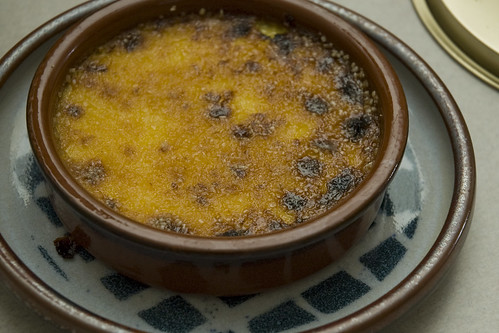
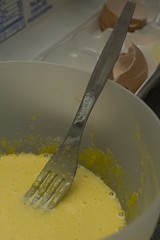


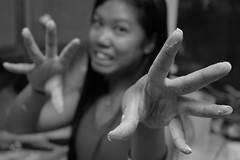 I have a lot of support cooking from my friends and family. However, a steady influence and motivation for cooking comes from my partner in crime, Melissa Galinato. She's a brilliant undergrad at UCSD, majoring in human biology. She, too, suffers from too much work and not enough time, but still finds enough to cook a few times a week. Coincidentally, we've been a couple for almost two years.
I have a lot of support cooking from my friends and family. However, a steady influence and motivation for cooking comes from my partner in crime, Melissa Galinato. She's a brilliant undergrad at UCSD, majoring in human biology. She, too, suffers from too much work and not enough time, but still finds enough to cook a few times a week. Coincidentally, we've been a couple for almost two years.
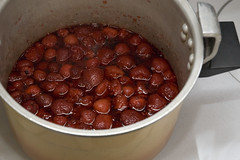


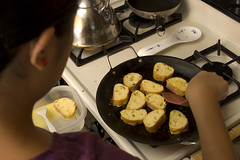

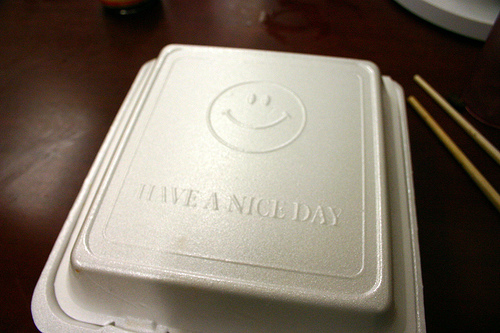

 As a freshman, my food came from the college all-you-care-to-eat commons. I took food for granted, and the process through which the ingredients went through before landing on my plate - from farming to transport to preparation - remained hidden behind a fog of apathy.
As a freshman, my food came from the college all-you-care-to-eat commons. I took food for granted, and the process through which the ingredients went through before landing on my plate - from farming to transport to preparation - remained hidden behind a fog of apathy.